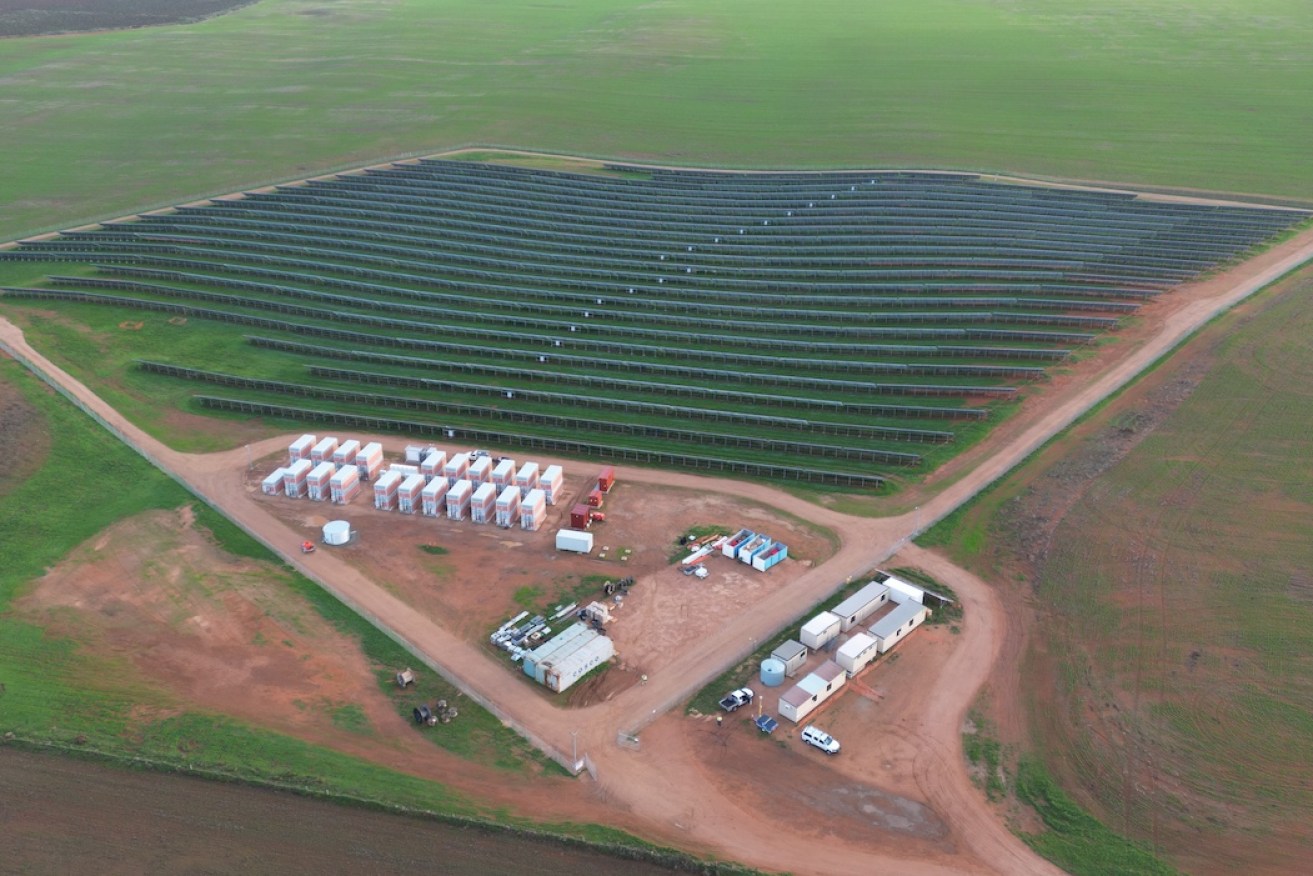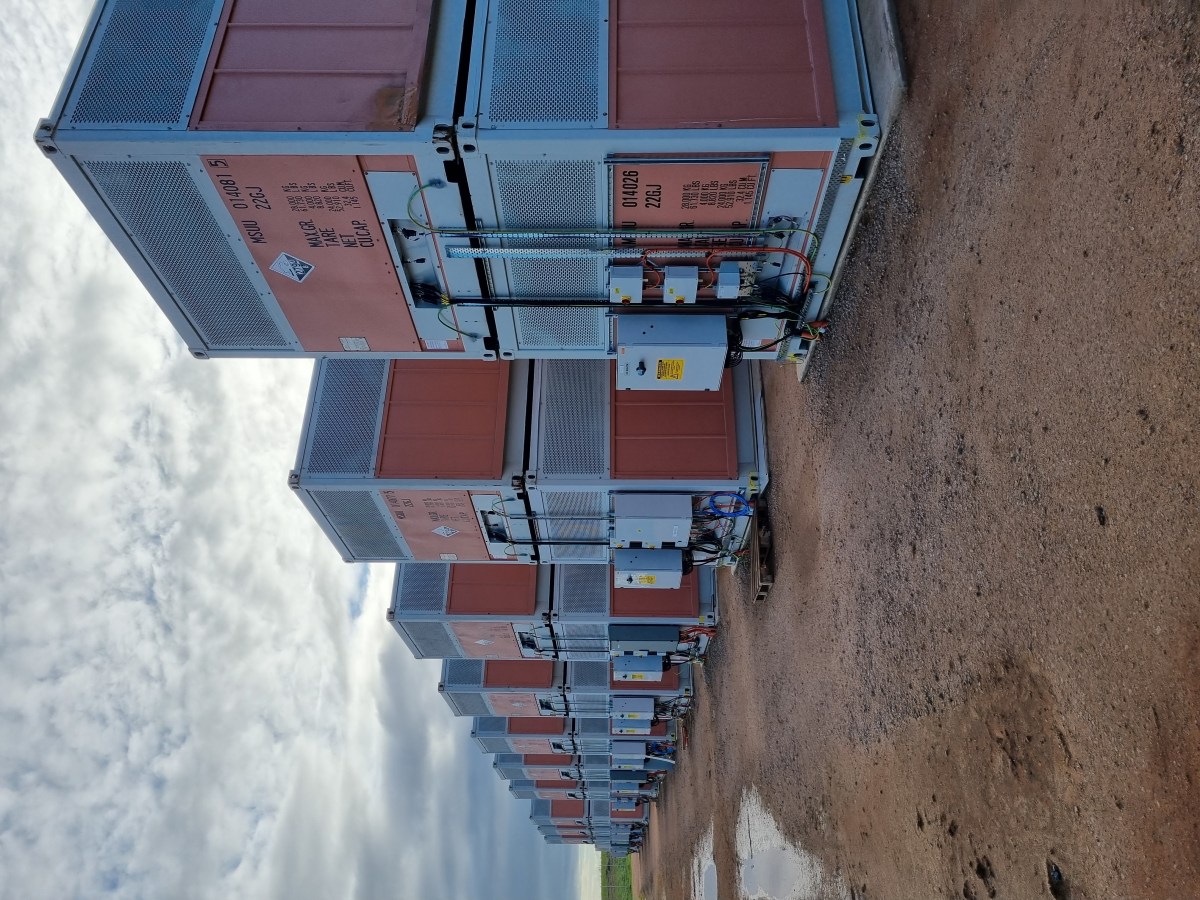Yadlamalka Energy turns on battery storage and solar project at Port Pirie
A $22 million vanadium flow battery and co-located solar farm three years in the making will go live today at Port Pirie.


An aerial view of Yadlamalka Energy's new Port Pirie battery and solar site. (Provided by Yadlamalka)
Yadlamalka Energy will unveil a new battery storage facility and solar farm capable of producing approximately 10 GWh of ‘dispatchable’ power per year.
Developed over the last three years with the backing of the Australian Renewable Energy Agency (AREA), the Spencer Energy Project uses a vanadium flow battery to store solar power produced when the sun is at its peak.
Vanadium flow batteries are a type of rechargeable battery that store energy in a non-flammable, liquid electrolyte and do not degrade with cycling, meaning they can last for years without dwindling returns.
Going down the route of vanadium rather than lithium-ion is more sustainable and safer too according to Yadlamalka founder and chairman Andrew Doman, who told InDaily that the project was a “first” for Australia.
“It’s a fantastic development for Australia and it feels like we’re on the verge of a vanadium revolution,” Doman said about the battery technology that was first developed at the University of New South Wales in the 1980s.
“I think we’re going to see widespread adoption of vanadium in the future. It’s got some very important advantages, one of which is that it doesn’t deteriorate significantly over time whereas lithium runs out of juice after three to five years.
“In Australia there have been one or two very small [vanadium] developments – 200 kW or something like that – but this will be the first application in Australia.”

Yadlamalka Energy’s battery stack at Port Pirie (Provided by Yadlamalka Energy).
The Spencer Energy Project at Bungama, Port Pirie, involves the battery supplied by London-headquartered Invinity Energy Systems and a 6MWp solar farm.
The battery itself will charge from excess electricity produced by solar panels, which can then be delivered to households when most needed, such as in the evening when grid loads are high from consumer demand.
Founder Doman added that the tech was “completely scalable” and recyclable too.
“This is a completely scalable technology, there’s no reason why you can’t have 100 or 200 containers on the site – it’s about scaling it up to whatever level you want,” he said.
“It’s also completely recyclable unlike lithium which is very difficult to recycle. This electrolyte that drives the power doesn’t deteriorate. These batteries can last 100 years – all you have to do is replace the pumps and they’ll go on and on.”
As for why Doman picked Port Pirie to host the Spencer Energy Project, the founder said he was keen to join the growing renewable energy corridor in the Spencer Gulf.
“There’s been a number of solar farms either in development or have been developed or planned, along with wind – a lot of wind up in that direction as well,” he said.
“There’s a corridor from Port Pirie up to Port Augusta. It’s also close to the central hub of the grid so it’s a good location from that point of view.”
Yadlamalka now plans on retrofitting existing solar farms in Australia with vanadium flow batteries to help those sites reach their potential.
“Demand at midday in South Australia goes down dramatically because so many households have solar on their rooftops, so at that time the price of energy can be negative,” Doman said.
“It’s not unusual to find that when the sun is shining and the wind is blowing that there’s more supply of energy than there is demand. That means solar farms are getting squeezed because they’re designed to work best at midday, but at midday the prices are often negative.
“That’s why we’re offering retrofitting batteries to solve that problem because everyone’s better off if they store that energy – otherwise its lost completely.”




